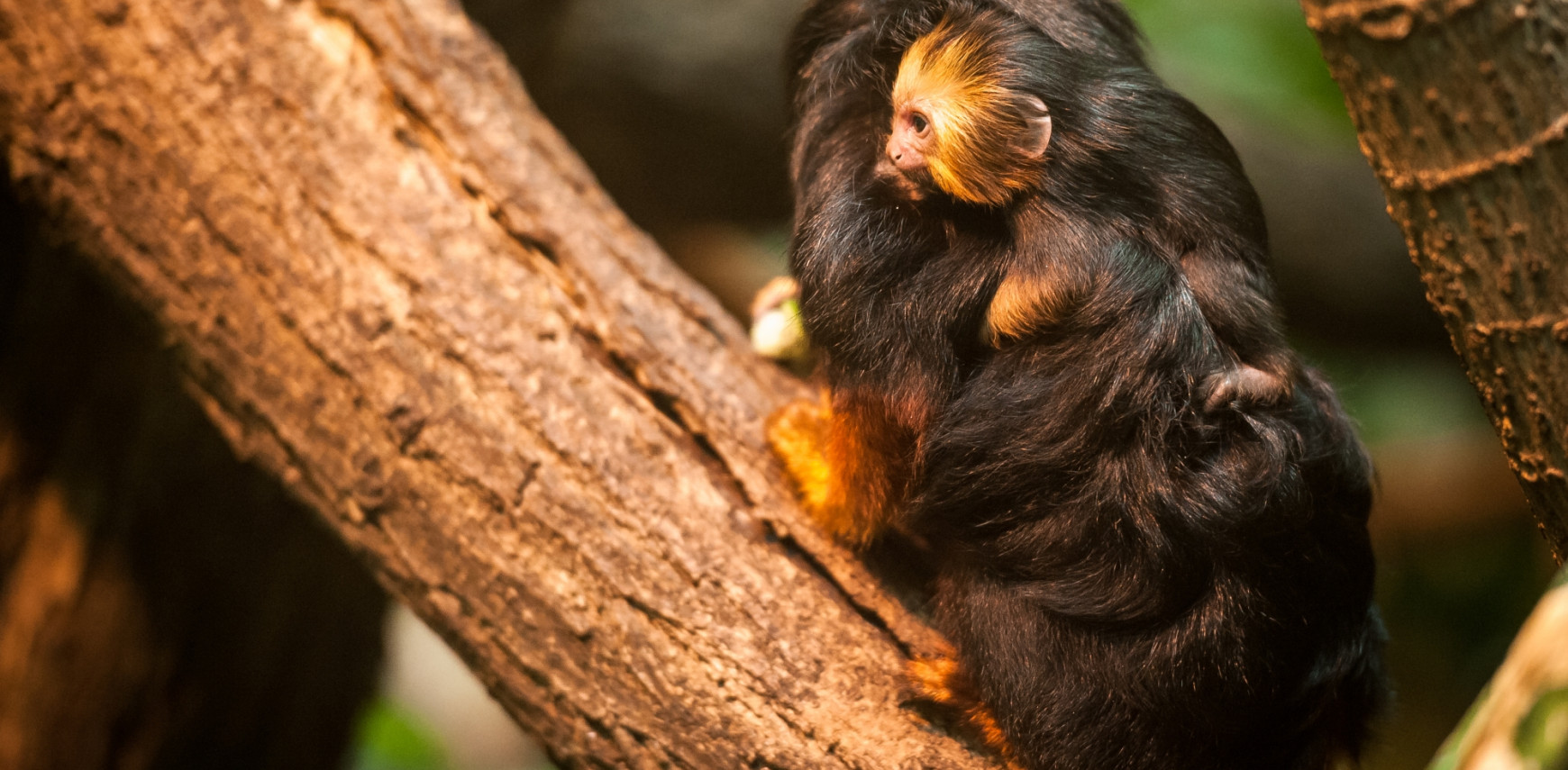Igor Inforzato
Research themes
- Primate food ecology
- Monitoring of free-living primates
- Reproductive ecology of Muriqui (Brachyteles; Primates - Atelinae)
- Animal and plant interactions
- Field studies
- Food ecology of Phylostomid bats
- Scientific divulgation.
-
Responsibilities
As Research Coordinator in our project BioBrasil, I am responsible for the logistic organization and supervision of the work of the field team, composed of research assistants and students. This includes ensuring the quality of routine Golden Headed Lion Tamarin (GHLT) ecological and behavioral data collection, and the implementation of research projects as foreseen within the strategic planning of the BioBrasil Research Program. I also organize, oversee and actively participate in the process of capturing GHLT groups twice per year to change radio-collars and I maintain the BioBrasil database. Finally, I provide image material and maintain a GHLT photo bank and assist in some of the Project’s environmental education activities, as needed.
Extra activities
Environmental consultant for environmental licensing purposes. Specifically, I do surveys and monitoring of free-living primates and bats.
Research Interests
I am interested in population ecology, behavioral ecology and species interactions aimed at the conservation of biodiversity. Specifically, my current interest is directed to research on how loss of habitat, fragmentation, and different types of land use can influence ecological processes, using primates and bats as research objects. Besides, I have an general interest in natural history.
Brief Biography
I graduated as a biologist from the Federal University of Mato Grosso do Sul (Brazil) in 2011, and obtained a Master in Ecology and Conservation of Biodiversity from the State University of Santa Cruz (Ilhéus, Brazil) in 2015. As an undergraduate, I investigated how plants and fruit bats interact and I became involved in several other studies on plant-animal interactions. After graduating, I became a collaborative researcher for the long-term project Muriqui [Primates - Atelidae] in Caratinga, coordinated by Dr. Karen B Strier. This work was carried out between June 2011 and July 2012 at RPPN Feliciano Miguel Abdala [FMA], Caratinga / Minas Gerais / Brazil, and during these 14 months, I collected the data I later used for my master’s degree. For my master's dissertation I investigated female feeding strategies in relation to the costs associated with different reproductive periods, using Muriqui (Brachyteles hypoxanthus) as study object. After this period, I continued monitoring work on the primate Chiropotes sagulatus at FLONA Saracá-Taquerá, Oriximiná/Pará/Brazil, through the Research Support Foundation [FUNAPE] between April and December and 2015. As of 2016 I extend my activities as environmental consultant to bats as well. In 2017 I became Research coordinator in the BioBrasil Project, which has been monitoring populations of GHLTs in the region of Una, South-Bahia, for over 15 years.
Key Publications
Dodonov P., Morante-Filho J.C., Mariano-Neto E., Cazetta E., Andrade E., Rocha-Santos l., Inforzato I., Gomes F.S., Faria D (2016) Forest loss increases insect herbivory levels in human-altered landscapes. Acta Oecologica (Montrouge), 77, p.136 - 143.
Inforzato I. (2016) 14 Meses com os Muriquis. Ciência Hoje - Crianças, v.277, p.2 - 56.
Costa-Pereira R., Severo-Neto, Inforzato I., Maps R.R., Pizo M.A (2015) Nutrients Drive Termite Nest Geophagy in Yellow-chevroned Parakeets (Brotogeris chiriri). The Wilson Journal of Ornithology., v.127, p.506 - 510.
Inforzato I. (2014) O maior primatas das Américas: Vivendo a vida dos muriquis-do-norte. Explora Web Magazine., v.VI, p.12 - 22.
Modena E.S., Pires A.C.V., Baronio G.J., Inforzato I., Demczuk S.D.B (2012) Do traits of fruits of the weed Senna occidentalis influence seed predation by Bruchinae? Revista Brasileira de Biociências (Online)., v.10, p.293 - 297.
Aranda R., Catian G., Bogiani P.A, Inforzato I. ( 2011) Effect of nectar pillaging by native stingless bees (Hymenoptera: Apidae) in the abscission of flowers of Bougainvillea spectabilis Willd. (Nyctaginaceae). Acta Scientiarum Biological Sciences (Online)., v.3, p.399 - 405.
More on ResearchGate

